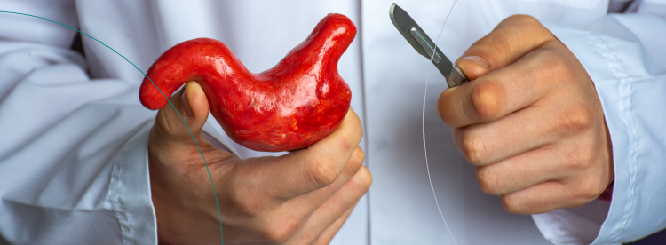
The number of people dealing with obesity has nearly tripled since 1975 around the world [1]. The prevalence of obesity is so alarming that it has been considered as one of the most concerning public health problems in the world.
According to estimates of the World Health Organization, by 2016, at least 13% of the world population was obese.
This represents approximately 650 million people. Another 23% was overweight. This means that, by 2016, 39% of the world population was either overweight or obese, meaning 1.9 billion adults [1].
The United States has one of the highest obesity rates in the world: 37% of its adult population, and 21% of its adolescent population is obese. Canada isn’t that far off, as 31% of its adult population is obese, followed very close by Mexico, with an obesity rate of 28% among adults. And this trend, far from diminishing, keeps rising and rising [2].
Obesity poses a series of dangerous health risks, some of them life-threatening. Obesity is a risk factor for hypertension, type II diabetes, dyslipidemia, obstructive sleep apnea, heart disease, gallbladder disease, non-alcoholic fatty liver disease, osteoarthritis, certain types of cancer, joint pain, low fertility, and severe COVID-19. Treating obesity has a positive impact in these conditions and it increases general quality of life, including mental health.
Bariatric surgery has proven to be the most safe and effective treatment for obesity. Bariatric procedures like the intragastric balloon, the gastric sleeve, the gastric bypass and the duodenal switch accomplish major weight loss and, at the same time, they significantly improve general health by ameliorating and even resolving obesity-related comorbidities. But despite the fact that many people could benefit from a this procedure, only 1% of the currently eligible population undergoes surgical treatment for obesity, with roughly 228,000 individuals receiving bariatric surgery each year in the United States [3].
This is why discussing the treatments that are currently available for obesity is so important. Many people don’t regard bariatric surgery as a possible choice. They simply are not aware that this option exists for them. And others who do know about the procedure remain sceptic because of the many myths associated with it.
In what follows, we will discuss the most popular myths about weight loss surgery and we will present the facts that debunk them.
5 myths about bariatric surgery
- It is a high-risk procedure. Decades ago, weight loss surgery was performed as an open procedure. This meant the patient had to be cut open so the surgeon could dissect the stomach or bypass the intestines. Back then, there was a considerably higher complication rate for this type of surgeries. However, nowadays most bariatric surgeries are performed by using laparoscopic techniques. With this method, the surgeon can intervene without the need of a scalpel. Instead, the surgeon makes 6 very small incisions in the patient’s abdomen, through which she or he inserts a laparoscopic camera and long lean surgical tools to maneuver from inside.
Given this technological innovation, bariatric surgeries nowadays are indeed very safe. The incidence of short-term complications varies between 4.9 and 10%; severe complications occur in 3% of patients, and death in 0.2% [5].
Another proof that weight loss surgery is very low risk is the fact that most take 1 to 2 hours to complete and hospital stays are very short, of 1 to 2 nights. - It can be avoided simply following a diet and exercising. Most people assume that obesity can be treated simply with diets and exercise, but this is not precisely true. Diets and exercise can make you lose a modest amount of weight, at a very low pace, with the risk of rapid weight gain. The effects of exercise by itself are limited when it comes to weight loss. The Physical Activity Guidelines Committee Report states that exercise alone usually results in weight loss of less than 3% of initial body weight, in normal circumstances and in optimal conditions [4]. In order to be more effective, exercise should be combined with a healthy low-calorie diet. But still, this combination has its own limits:In a systematic review of intensive lifestyle interventions for patients with severe obesity, diet and exercise alone were associated with weight loss of only 5-8% from baseline at 12 months. A larger study in patients with obesity and diabetes demonstrated only 3.5% weight loss after a median of 9.6 years with a very modest improvement in diabetes control [6]. Weight loss between 3 and 8% might seem like a big deal, but it does not really make a huge difference when we are dealing with patients that are struggling with obesity and morbid obesity, specially when their life is at risk due to an obesity comorbidity. In those cases, waiting a couple of years for a weight loss that might still seem uncertain poses more risks.
- It is the easy way out of obesity. Let’s first say that there is no merit in suffering. No one should suffer their way out of a bad health condition. Having obesity and health risks is difficult enough. Now, having that said, let it be clear that undergoing bariatric surgery is not exactly a walk in the park. Patients have to endure a very strict pre-surgical and post-surgical diet. They also need to be very disciplined with their vitamin supplementation. And the most important thing: these patients have to make a lifetime commitment to begin and maintain healthy habits in order to maintain their weight loss. This includes a healthy diet and exercise routines. There’s no turning back. After bariatric surgery, patient’s lives change forever, for the best.
- With it, you lose weigh in the short-term, but gain it all back in the long-term. This is completely false. Bariatric surgery has proven to be an effective treatment for weight loss that delivers long-lasting results. Research about bariatric surgeries usually carries on patient follow-up of one year and many more, and, although there is the possibility of mild weight regain after more than 5 years, the literature agrees in that bariatric surgery accomplishes very significant weight loss and that most patients succeed in maintaining it for more than 20 years. In a study that compared bariatric surgery treatments with traditional obesity control among 4,047 Swedish adults concluded that the mean changes in body weight after 10, 15 and 20 yeas were -17%, -16% and -18% in the surgery group and only 1% for those 3 spans in the control group [7].
- It is very expensive. Well… this is relative. Let us explain. The price of a bariatric surgery is very different in one country from another. Weight loss surgery is expensive… in the United States. Prices can range from 15,000 to 25,000 USD, depending on the type of procedure. But if you travel to Tijuana, Mexico, the best medical tourism destination in the country, you can obtain the same intervention, with the same quality and with superior patient care, at only a third of the price for the same service in United States and other regions like Canada and Europe. Really. You can even pay for your airplane fair, your hotel and expenses, and still be saving half of the money you would have spent in your home country.
- Of course, putting your own pocket money upfront to pay surgical procedures can still be very difficult. Let us put your mind at ease. As weight loss surgery has been fully acknowledged as a safe and cost-effective strategy for the treatment of obesity among the medical community, now most of the insurance providers offer insurance policies that cover the most popular bariatric surgeries, like gastric sleeve, gastric bypass and duodenal switch. However, there are some interventions that are still not covered, like the mini-gastric bypass, the intragastric balloon and the gastric plication, for instance. Furthermore, insurance doesn’t usually cover cosmetic interventions like post-bariatric plastic surgery or revisional surgery. But there are other financial alternatives, like medical loan companies that offer different loan programs for patients looking forward to receive medical interventions that are not usually covered by insurance, even if they are carried out in Mexico or another medical tourism destination.
- Our clinic in Tijuana, Mexico, is a registered as a provider in many different medical loan companies in the United States and Canada, so financing is easy and convenient for our patients.
We have successfully debunked 5 of the most popular myths about bariatric surgery. What are your concerns? Are you interested in obesity treatment but are still not sure about your options? Give us a call today! We can provide you with information about everything you need to know to make the right decision.
Weigh loss surgery in Tijuana, Mexico
At LIMARP, International Center of Excellence for Obesity, we offer an integrative bariatric program, with a multidisciplinary approach, for the treatment of obesity. Our program includes a surgical intervention —like a gastric sleeve, a gastric bypass or a duodenal switch—, or a non-surgical intervention —like an intragastric balloon—, along with psychological counselling, nutritional guidance, personalized fitness routines, and long-term follow-up.
For our patients traveling from abroad, we also offer accommodation in our next-door hotel, the luxurious Grand Hotel Tijuana, and transportation to and fro the airport and the hotel.
Our clinic is one of the only centers in Mexico that have been certified as a Center of Excellence by the Surgical Review Corporation. Our lead surgeon, Dr. Liza María Pompa González is certified as a Master Surgeon and Surgeon of Excellence by the same organization, and she is the first female surgeon to be awarded with this recognition.
Contact us today
Our team is ready to help you. At LIMARP, patients will always receive warm, sincere and professional answers. For a free evaluation please call us at (619) 270 8823, fill out a contact form at www.limarp.com, or message through any of our social media pages.
References
- [1] World Health Organization (June 9, 2021). Obesity and overweight. https://www.who.int/news-room/fact-sheets/detail/obesity-and-overweight
- [2] World Health Organization (2018). Noncommunicable Diseases (NCD) Country Profiles. https://apps.who.int/iris/handle/10665/274512
- [3] Gasoyan, H.; Tajeu, G.; Halpern, M. T.; Sarwer, D. B. (2019). Reasons for Underutilization of Bariatric Surgery: The Role of Insurance Benefit Design. Surgery for Obesity and Related Diseases, 15(1): 145-151. https://pubmed.ncbi.nlm.nih.gov/30425002
- [4] Coen, P. M. & Goodpaster, B. H. (2016). A Role for Exercise After Bariatric Surgery? Diabetes Obes Metab, 18(1):16-23. https://www.ncbi.nlm.nih.gov/pmc/articles/PMC5642115/
- [5] Cobljin, U. K.; Karres, J.; de Raaff, C. A. L.; de Castro, S. M. M.; Lagarde, S. M.; van Tets, W. F.; Jaap Bonjer, H. & van Wagensveld, B. A. (2017). Predicting postoperative complications after bariatric surgery: the Bariatric Surgery Index for Compications, BASIC. Surgical Endoscopy, 31 (11): 4438-4445. https://www.ncbi.nlm.nih.gov/pmc/articles/PMC5666042/
- [6] Das, B. & Khan, O. A. (2019). The myths of obesity. International Journal of Surgery, 68: 114-116. https://www.sciencedirect.com/science/article/pii/S1743919119301529
- [7] Sjöström, L. (2013). Review of key results from the Swedish Obese Subjects (SOS) trial – a prospective controlled intervention study of bariatric surgery. J Intern Med, 273(3): 219-34. https://pubmed.ncbi.nlm.nih.gov/23163728/


